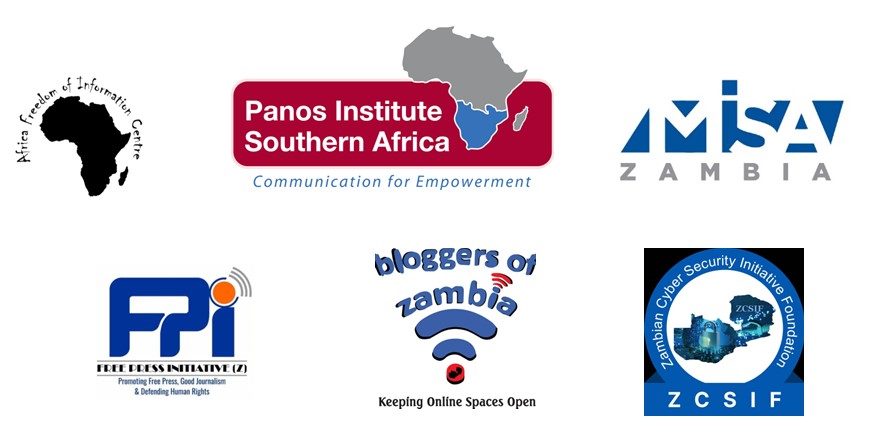
Urgent appeal for Zambia to enact access to information law before Summit for Democracy
Lusaka/Kampala, 10 February 2023: We, the undersigned civil society organisations, have noted the announcement by the Minister of Information and Media, Hon. Chushi Kasanda that Cabinet approved the roadmap to enact the Access to Information law by June 2023.
In her statement, Hon. Kasanda said the Government wanted “to ensure that adequate consultations are undertaken with all stakeholders”. We are eager to know which stakeholders have not been consulted, and we will play our part in expediting their engagement.
From the time the United Party for National Development (UPND) through its then Member of Parliament for Livingstone Central, Hon. Sakwiba Sikota, sponsored the Freedom of Information Bill in 2002, successive governments have been moving in circles, with the process always stalling because of the need for “consultations”.
For the avoidance of doubt, we are not against consultations, as such a process allows all citizens and stakeholders to own the law. However, we are of the view that more than enough consultations on ATI have been done from the 1990s until now.
We respectfully call on the government to use the feedback already provided by us and other stakeholders and urgently expedite the enactment of the ATI during the first quarter of 2023 as initially indicated. We urge the Government to enact the ATI law before the Second Summit for Democracy, which Zambia will be co-hosting with the United States of America, Costa Rica, the Kingdom of the Netherlands and the Republic of Korea in March 2023.
On 20 January 2023, as the Africa Freedom of Information Centre (AFIC), the Panos Institute Southern Africa and MISA Zambia, wrote a letter to President Hakainde Hichilema, commending him for positioning the Republic of Zambia to co-host the Second Summit for Democracy, and we appealed to him to ensure the ATI is enacted before the Summit, considering that all the other co-hosts have ATI laws. Co-hosting a global event of such a magnitude is a great vote of confidence in Zambia’s progress in implementing democratic reforms, but the absence of an ATI law undermines Zambia’s commitment to democracy, transparency, integrity and anticorruption.
Our view is that access to information is the oxygen of democracy that helps government to save resources and serve its people better. Access to public information is at the heart of democracy, fostering the observance of human rights and the rule of law. There cannot be true democracy without people’s informed participation, and informed participation cannot take place without citizens having the power of the law to give them the information they need. Whether it is electing leaders, ensuring that voices of millions of women, youth, persons with disabilities and those of all Zambians are heard, delivering good quality service or enabling businesses to make informed investment decisions, timely access to information is critical.
It is for this reason, that the right of every individual to access public information is recognized in six of the African treaties namely, the African Charter on Democracy, Elections and Governance; the African Union Convention on Preventing and Combating Corruption; the African Charter on Human and People’s Rights; the African Charter on the Values and Principles of Public Service Administration; and the African Youth Charter; and the African Charter on Statistics. It is, therefore, concerning that in spite of being party to these treaties, the Government of the Republic of Zambia has not adopted an Access to Information legislation to give effect to these treaties.
The Republic of Zambia is a State Party to the African Charter on Human and Peoples’ Rights which under Article 19 recognises the right of every individual to access public information. In addition, Principle 26 (1) of the Declaration of Principles on Freedom of Expression and Access to Information adopted by the African Commission on Human and Peoples’ Rights in 2019 states that, “The right of access to information shall be guaranteed by law….”
It is of great concern that seven years since the adoption of the Sustainable Development Goals (SDGs) Framework in 2015 which under Goal 16.10 urges member states to, “Ensure public access to information and protect fundamental freedoms, in accordance with national legislation and international agreements” the Government of Zambia is lagging on this particular SDG target.
Recently, at the United Nations in Geneva during the 42nd session of the Working Group on the Universal Periodic Review (UPR) Zambia received at least 17 recommendations relating to the protection of civic space, including the adoption of ATI law in line with Zambia’s international standards and in line with Zambia’s international obligations.
In response to a request from President Hichilema on November 18, 2021, an International Monetary Fund (IMF) mission undertook a governance diagnostic assessment from January 14 to May 6, 2022. In its report released on December 28, 2022, IMF said that the “most significant governance weaknesses are demonstrated in the limited transparency and absence of an effective access to information framework….” Access to Information is, therefore, a prescription that the Government of Zambia got from IMF. We, therefore, call upon the Government of Zambia to take up the prescription by enacting ATI and enhance the work of moving Zambia from poverty to prosperity.
Considering the great work, and resources, already invested into ATI development and advocacy since the 1990s, and the commendable progress of the last few months, we appeal to the Government of Zambia to urgently fast-track the enactment of the ATI Bill ahead of the Summit for Democracy. There is no need for further consultations.
ENDS/
Issued by:
Vusumuzi Sifile
Executive Director, Panos Institute of Southern Africa
For and on behalf of the following:
- Gilbert Sendugwa, Executive Director, Africa Freedom of Information Centre
- Austin Kayanda, National Director MISA Zambia
- Richard Mulonga, CEO, Bloggers of Zambia
- Joan Chirwa, Founder/Executive Director, Free Press Initiative
- John Tshinseki, President, Zambian Cyber Security Initiative Foundation
- Vusumuzi Sifile, Executive Director, Panos Institute of Southern Africa